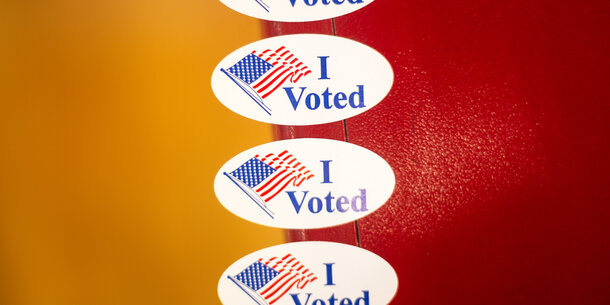You’re reading The Briefing, Michael Waldman’s weekly newsletter. Click here to receive it every week in your inbox.
On this day in 1965, state troopers attacked John Lewis and over 600 civil rights activists at the Edmund Pettus Bridge in Selma, Alabama. “Bloody Sunday” provoked national outrage that led to the passage of the landmark Voting Rights Act.
Over the past 58 years, it has become de rigueur for many presidents and candidates to make a pilgrimage to Selma to remind the nation of unfinished work. President Biden went there this past weekend and declared that the fundamental right to vote “remains under assault.” In fact, with the Supreme Court poised to wreak further mayhem in June, this could be the last commemoration of Bloody Sunday with even a semblance of a meaningful Voting Rights Act.
Critically, the president again called for national legislation, even if it requires changing Senate rules on the filibuster. The Freedom to Vote Act and John Lewis Voting Rights Advancement Act would set national standards, ban gerrymandering, and restore strong civil rights protections. These bills must remain a national priority. Recall that voting rights failed in 1957, 1960, and 1964 before Lewis’s sacrifice brought it into being in 1965.
This use of the presidential bully pulpit is in the highest tradition. Plainly, Biden cares deeply. But there is more he can do without Congress.
In 2021, Biden signed an executive order on Bloody Sunday that directed federal agencies to pull all the levers within their reach to make it easier for citizens to register and vote. U.S. election participation is poor compared to our peer nations. Nearly 63 percent of Americans of voting age cast a ballot in the 2020 presidential election, a recent high for our country but still far behind others such as Sweden (80 percent), Belgium (78 percent), and Australia (76 percent). The 2021 executive order could inch us toward where we should be.
But here is where Biden’s record becomes slightly clouded: too many of the agencies in his administration have failed to deliver the reforms that the 2021 executive order envisions, as my colleague Lisa Danetz explains in an article on the Brennan Center’s website.
For example, voter registration should be offered at every touchpoint citizens have with the federal government. When an immigrant becomes a U.S. citizen, they should be offered a chance to register after the naturalization ceremony. When an American applies for health insurance through healthcare.gov, there should be an opportunity to register to vote. And yet, U.S. Citizenship and Immigration Services and the Department of Health and Human Services dither.
The General Services Administration has taken steps to fulfill its mandate, but also has been slow to finish the job. The website vote.gov, for example, is in serious need of upgrading to become the envisioned one-stop resource where any American can register to vote in any state and in any language.
In too many states, people with disabilities or limited English face barriers to registration and voting. Many people have to travel great distances to fulfill the most basic duty of a citizen. Some states are farcically behind the times — Mississippi and South Dakota still don’t offer online registration.
This is where the federal government can fill gaps. The General Services Administration already includes the National Mail Voter Registration Form on vote.gov, but it’s too hard to find and fill out. This year, the agency must turn it into a fillable web form, and signature capture must be offered, so citizens can easily register to vote in their home states.
Let’s acknowledge: The administration has taken some important steps. In the last two years, the Veterans Affairs Department has prepared to offer voter registration in health facilities in three states. (Forty-seven to go!) The Bureau of Indian Education is implementing voter registration at tribal universities. These are significant wins. But there’s still much to do, and democracy can’t wait.
The singer John Legend declared “Selma is now” at the 2015 Academy Awards. That’s even truer today, as legislators in several states work to make registration and voting more difficult. President Biden must do everything he can to counteract those efforts.






